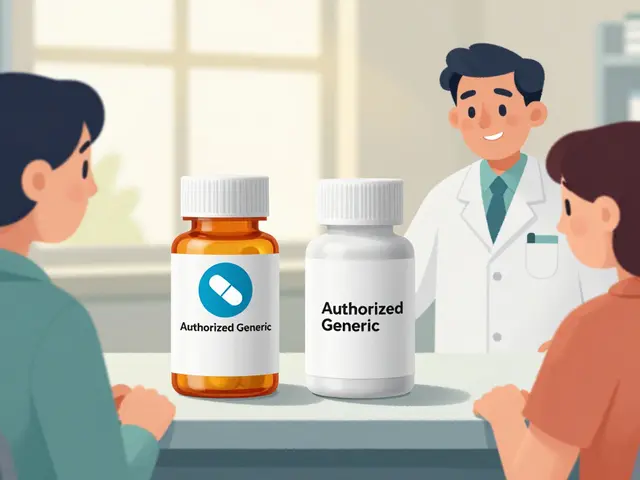Bipolar Disorder Medication: What Works, What to Watch For
If you or someone you care about has bipolar disorder, medication is usually the backbone of treatment. Finding the right mix can feel confusing—there are mood stabilizers, antipsychotics, sometimes antidepressants, and each has pros and cons. Here’s a clear, practical guide that helps you understand options, side effects, and how to stay safe when getting prescriptions online.
How medications help
Mood stabilizers like lithium, valproate (divalproex), carbamazepine, and lamotrigine reduce the extreme highs and lows. Lithium is the oldest with strong evidence to prevent mania and suicide, but it needs blood tests. Valproate works fast for mania but isn’t safe in pregnancy. Lamotrigine is better for depression prevention and has fewer sedating effects.
Second-generation antipsychotics such as quetiapine, olanzapine, and lurasidone are also used to control mania or mixed states and sometimes to treat bipolar depression. They can work faster than mood stabilizers but often cause weight gain, metabolic changes, or drowsiness.
Antidepressants are sometimes added for depressive episodes, but they can trigger mania if used alone. Doctors usually pair them with a mood stabilizer or antipsychotic, not use them by themselves.
Safety, monitoring, and getting meds online
Medication choice depends on your symptoms, medical history, age, pregnancy plans, and side effect tolerance. Expect regular follow-up: blood tests for lithium and valproate, metabolic checks for antipsychotics, and dose adjustments over weeks or months. Keep a symptom diary so you and your clinician can spot patterns early.
Thinking of buying medication online? Be careful. Only use pharmacies that require a valid prescription and show clear contact information. Look for secure payment, reliable shipping, and verified customer reviews. Avoid sites that sell prescription meds without a prescription—those drugs may be fake or unsafe.
Side effects matter. Lithium can cause tremor, thirst, and thyroid or kidney issues. Valproate may cause hair loss, weight gain, and liver problems. Antipsychotics can raise blood sugar and cholesterol. Talk to your clinician about ways to reduce risks: dose changes, lab monitoring, or switching drugs.
What if you think a medication isn’t working? Don’t stop suddenly. Sudden stops can cause relapse or withdrawal. Contact your prescriber to adjust the plan safely. If costs are an issue, ask about generic options, patient assistance programs, or reputable online pharmacies that require prescriptions to save money without risking safety.
Medication is only one part of care. Therapy, sleep routines, healthy eating, and support networks make medications work better. Keep your team close: psychiatrist, primary care doctor, and pharmacist. That team helps you stay stable and spot problems early.
Start any medication plan by writing down questions. Ask about interactions with other drugs, alcohol, and supplements, and whether the medicine is safe if you are planning pregnancy. Bring a list of current medicines to every appointment. If you buy from an online pharmacy, keep receipts and the original packaging. Reach out for help early if mood swings return or side effects appear — early fixes prevent bigger problems and keep you safer. Always.

7 Alternatives to Quetiapine in 2025: Effective Options Explained
Looking for options beyond quetiapine in 2025? This article breaks down seven practical alternatives, including mood stabilizers and antipsychotic choices. Each alternative comes with real pros, real risks, and honest tips for users and caregivers. Find clear comparisons and straightforward advice so you can discuss the best choices with your doctor. No jargon—just the info you need to make smart decisions.
view more




